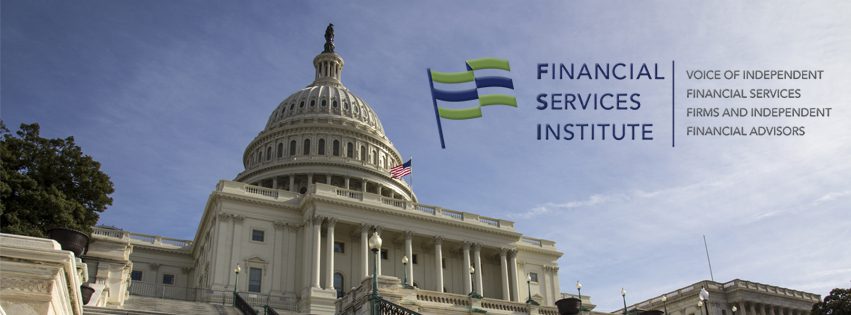 On June 14, 32 House of Representative Democrats representing minority districts sent a letter to the Department of Labor (DOL) addressing the pending rule on the redefinition of ‘fiduciary.’ The letter detailed some of the unintended consequences that the new rule – which potentially will expand what it means to be a fiduciary under ERISA. – will have on minority investors. The Members of Congress raised concerns that the re-proposal could severely limit access to low cost investment advice and restrict constituents access to professional financial advisors.
On June 14, 32 House of Representative Democrats representing minority districts sent a letter to the Department of Labor (DOL) addressing the pending rule on the redefinition of ‘fiduciary.’ The letter detailed some of the unintended consequences that the new rule – which potentially will expand what it means to be a fiduciary under ERISA. – will have on minority investors. The Members of Congress raised concerns that the re-proposal could severely limit access to low cost investment advice and restrict constituents access to professional financial advisors.
To provide some background, this rule was proposed on October 22, 2010, by the Department of Labor’s Employee Benefits Security Administration (EBSA) to amend the definition of “fiduciary” for purposes of the Employee Retirement Income Security Act of 1974 (ERISA) and section 4975 of the Internal Revenue Code of 1986 (Code). The proposal would broadly define the term as a person who provides investment advice to plans for a fee or other compensation, with the goal of protecting investors.
The independent broker-dealers and independent financial advisors represented by FSI provide highly regulated, professional investment services to investors in accordance with standards of conduct specified by the Securities and Exchange Commission, the Financial Industry Regulatory Authority, state insurance and securities commissioners and other regulators. Most often, they are compensated for their services through commissions. Commissions are a form of compensation allowed to service providers under ERISA, but not investment advice fiduciaries.
In the previously proposed rule, the DOL’s would re-categorize these advisors as fiduciaries if they provide advice on retirement accounts such as IRAs or Covered Plans and receive payment for the advice. Status as a Covered Plan or IRA fiduciary has significant consequences, including increased liability and the elimination of commissions as a form of compensation for those who provide advice and support services, leaving small businesses the difficult choice of providing this important advice to their clients despite a disproportionate level of liability. If the DOL’s proposal were adopted, many broker-dealers and financial advisors would be forced to withdraw from the market of advising Covered Plans, their participants and IRA investors, reducing access to these types of services.
At a time when many Americans are struggling to ensure themselves a secure retirement, the proposal could severely limit access to affordable investment advice; with this in mind, the DOL should be adopting policies that expand access. Due to these issues, several members of Congress, including members of the Congressional Black Caucus and the Congressional Hispanic Caucus, have voiced their concerns via the letter sent this past week.
Learn more about this issue or let us know your thoughts in the comments section!
